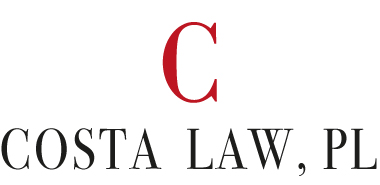Estate Planning Basics: Understanding the Difference Between Wills and Revocable Living Trusts
When engaging in estate planning you will want to make sure you are using the right tools and resources to get the best results possible. Two very popular and helpful tools to use are the Last Will and Testament (or Will for short) and a Revocable Living Trust. These are both options for helping you identify what you want to happen to your assets after you pass away. They are, however, quite different in how they work.
Probate Court
If you die without any estate planning, or with only a Will in place, your estate will have to go through the probate court process. This is where all of your assets are identified, their value is established, any debts are settled, and all remaining assets are distributed to your heirs. During this process, your Will is what will direct the courts on where your assets should go.
When you have a Revocable Living Trust in place when you pass away, all assets contained within that Trust will not have to go through the probate process at all. The director of the Trust will simply manage the trust, which includes distributing any assets as instructed, until the Trust can be closed. Avoiding probate is not only going to be much easier and less expensive for your loved ones, but it also helps keep your assets private. Anything that goes through probate, including a Will, is a matter of public record. Your Revocable Trust, on the other hand, is not.
Providing for Your Needs Today
A Will only goes into effect upon your death. Nothing in the Will can be used to provide instructions or take other action while you’re still living, which is one of its biggest restrictions. A Revocable Living Trust, however, can take effect immediately. In your Trust, for example, you can include instructions on how you want your estate to be administered. If you become mentally incapacitated, your loved ones won’t have to petition the courts to have the estate properly managed. Instead, the management of your assets would automatically be done by the person you have already appointed.
You May Still Need a Will
At first, it may seem like a Revocable Living Trust is an obvious choice for anyone who is engaging in estate planning, and in most cases it is. This does not mean, however, that you won’t need a Will at all. Some things, like identifying who you want to care for your children if you pass away, can’t be taken care of in a Trust. Additionally, most people won’t have every single asset they own contained within a Trust. When this is the case, they can create what is known as a pour-over Will, which will apply to all assets that aren’t contained in a Trust.
Talk with an Estate Planning AttorneyEvery family is unique and will have different requirements when it comes to estate planning. The best way to determine exactly what you need is to talk with an estate planning attorney. Contact me today to go over your options on how to get everything in order to provide peace of mind to your loved ones.





